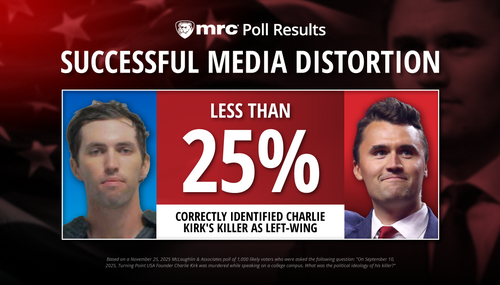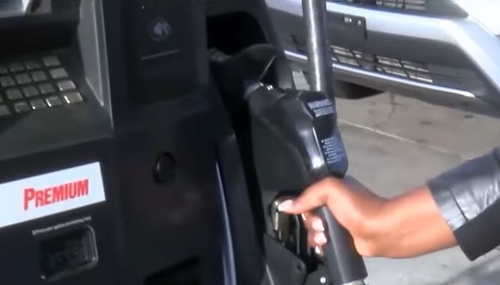The anti-law enforcement bias prevalent in the way Univision covers the news isn’t limited to bias against enforcement of U.S. immigration law. It also extends to include bias against voter ID laws across the country - laws that are designed to protect against voter fraud and safeguard the integrity of the American electoral process.
This bias was once again evident in the network’s latest coverage of a new National Association of Latino Elected and Appointed Officials (NALEO) report, titled Latino Voters at Risk, that bellyaches about such “discriminatory” election law provisions as voter ID, proof of citizenship, registration application processing and list maintenance (no, we’re not kidding), felon disenfranchisement and insufficient language assistance.
Both Univision anchor Jorge Ramos and correspondent Luis Megid were quick to signal to their viewers that they side with NALEO’s position against voter ID laws.
LUIS MEGID, CORRESPONDENT, UNIVISION: More than 13 million Hispanics will vote in November. But millions more will stay at home, in large part due to obstacles designed precisely for them not to vote in this election.
ARTURO VARGAS, EXECUTIVE DIRECTOR, NALEO: The problems that we have are that there are states that limit access to voting.
Megid not only downplayed the case voter ID proponents make about assuring the purity and integrity of this fundamental exercise of citizens in a democracy (only 14 seconds of the two-minute and 17 second report were dedicated to the pro-voter ID side), but also failed to acknowledge that such laws are actually normal and routine throughout the world, including in many of the places of origin of Univision’s viewers and their families.
Already during 2016, there have been disturbing signs of voter fraud, most prominently on the Democratic side, that have consistently been working to Hillary Clinton’s advantage.
If these shenanigans are going on during the primary season, can you imagine what we may be in store for in the run-up to Election Day on November 8th?
Upholding the integrity of the electoral process is something all decent, sensible citizens should be able to agree on and share common concern and vigilance for, as an absolutely essential element of a functional democratic, constitutional republic such as ours. In fact, this was just the way of thinking of former Democratic President Jimmy Carter and former Republican Secretary of State James Baker in a joint report, released just over a decade ago, titled Building Confidence in U.S. Elections, in which they declared:
The electoral system cannot inspire public confidence if no safeguards exist to deter or detect fraud or to confirm the identity of voters. Photo IDs currently are needed to board a plane, enter federal buildings, and cash a check. Voting is equally important.
If Ramos and Megid wish to correct course and engage in honest journalism, they would do well to be more respectful and inclusive of such views, embraced by most Americans, instead of rushing to parrot and support the highly suspect recent attacks against voter ID laws.
Below is the transcript of the cited segment on the May 11, 2016 edition of Noticiero Univision:
UNIVISION
NOTICIERO UNIVISION
5/11/16
6:40:18 PM – 6:42:35 PM EST | 2 MIN 17 SEC
JORGE RAMOS, ANCHOR, UNIVISION: Among the 27 million Hispanics eligible to vote in these elections, NALEO estimates that over 13 million will take part in this electoral process. However, this organization also indicates that nearly one million of them face difficulties in exercising their right to vote, [due to] obstacles imposed by states. Luis Megid explains.
LUIS MEGID, CORRESPONDENT, UNIVISION: The number will be historic. More than 13 million Hispanics will vote in November. But millions more will stay at home, in large part due to obstacles designed precisely for them not to vote in this election.
ARTURO VARGAS, EXECUTIVE DIRECTOR, NALEO: The problems that we have are that there are states that limit access to voting.
LUIS MEGID, CORRESPONDENT, UNIVISION: The director of NALEO, the National Association of Latino Elected and Appointed Officials, is worried. A report of the association concludes that since the last presidential election, 19 states have created new barriers which potentially limit the Hispanic vote. These obstacles threaten the vote of more than 875,000 Latinos in the November elections. Among them, six states that have had the largest Hispanic population growth in recent years have adopted more restrictive changes.
ARTURO VARGAS, EXECUTIVE DIRECTOR, NALEO: It’s not just requiring identification to vote, but they are also limiting the ballot boxes, the boxes where people can go to vote, there are fewer boxes today.
LUIS MEGID, CORRESPONDENT, UNIVISION: Some states have added identification requirements for those who want to register to vote. Others have shortened the time to register, or have complicated rules for voting by mail. The obstacles are different, the result is the same. Covered by a recent decision of the Supreme Court, which protected the rights of Hispanic and African-American voters, state legislatures controlled by Republicans have adopted rules that NALEO sees as discriminatory.
ARTURO VARGAS, EXECUTIVE DIRECTOR, NALEO: What worries me most is the state of Texas, there are more than 700,000 Latinos who do not have the identification required in that state to vote.
LUIS MEGID, CORRESPONDENT, UNIVISION: Those who defend the law in Texas say the aim is to combat electoral fraud.
LEONILA OLIVARES, TEXAS REPUBLICAN LEADER: I do not see it as something that is discriminatory in any way, I don’t see it that way, because I want the law to be applied.
LUIS MEGID, CORRESPONDENT, UNIVISION: With less than six months to the presidential election, it is worth remembering that those who want to vote in November will have to pay close attention to the rules.






